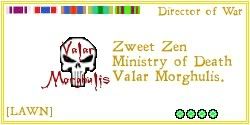Just thought I would share some thoughts on this book that I read today. I know that most of you have already read this book so please offer any insights that you feel are important that I am missing.
I have previously read her most famous book, Atlas Shrugged, and wanted to give this one a try for the past three years. It is a rather short book, registering at about 100 pages. The story is about how one might feel under a totally collectivist society, and how one should feel after escaping it. I just want to put a few quotes down that I found interesting throughout the book.
"The laws say that none among men may be alone, ever and at any time, for this is the great transgression and the root of all evil."
This description of the collectivist struck me as the one that most wholly applied to the world today. When I was in England and taking a bus ride, I saw the following sign:

This is the exact thing that Rand was predicting in her book. We may not isolate ourselves from others, we must only live for others. By being unwilling to speak or just being naturally introverted, a person could be investigated. What an abridgment of freedom that is.
"But I still wonder how it was possible, in those graceless years of transition, long ago, that men did not see whither they were going, and went on, in blindness and cowardice, to their fate."
To a certain extent, I think there are people who see that we are giving up a lot of our individual rights in the name of equality. While I would like to say that the tea party represents the culmination of people with that foresight, I think that most of them are blind sheep following their favorite radio personalities. I was listening to NPR a few days ago and heard someone say that tea partiers would rather receive tax cuts than pay down the debt, and I would link to this poll if I could find it. My opinion is that public tax and debts are both slavery, and that until both are eliminated we will always be obligated to work for the benefit of others.
"There is nothing to take a man's freedom away from him, save other men. To be free, a man must be free of his brothers. That is freedom. That and nothing else."
What an insightful statement!
Rand ends on a bit of hope:
"Through all the darkness, through all the shame of which men are capable, the spirit of man will remain alive on this earth. It may sleep but it will awaken. It may wear chains, but it will break through. And man will go on. Man, not men."
 Taggart Transdimensional
Taggart Transdimensional
 Virtue of Selfishness
Virtue of Selfishness

 Perkone
Perkone



